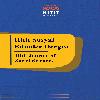Proclus’un Âlemin Kıdemine İlişkin Delilleri Üzerine
Âlemin kıdemi ve hudûsu problemi, felsefe ve kelamın temel problemlerinden birini oluşturmaktadır. İslam âlimlerine göre bu konunun kaynağı Aristo’ya kadar uzanmaktadır. Hicri ikinci asrın başlarından itibaren konu Müslüman âlimler tarafından da tartışılmıştır. Yeni-Plâtoncu fikirleri ile tanınan Proclus, âlemin kıdemini savunmuş ve bunu on sekiz delil ile ispatlamaya çalışmıştır. İshak b.Huneyn bu delillerden dokuzunu Arapçaya çevirmiş, Şehristân’i de bu delillerden 8’ini “Kitâbu’lmilel ve’n-nihal” adlı eserinde özetlemiştir. Proclus’un bu eseri islam dünyasında büyük bir yankı oluşturmuştur
On the Evidences of Proclus on the Eternity of the World
The problem of the eternity or temporal origin (huduth) of the world is one of the basic problems in Islamic philosophy and theology. According to Muslim scholars, the beginning of the issue went as far back as to the time of Aristotle. Among the Muslim Scholars the issue received attention around 2th century after Hicrah. Proclus known with his neo Platonist views claimed the eternity of the world and tried to prove his claime with 18 evidences of which nine of them were translated into Arabic by Ishak b. Huneyn. Later, Shahristani summarised 8 of the evidences in his book Kitab almilal va al-nihal.” The evidences of Proclus claiming the eternity of world had their echoes in Muslim World.
___
- Suphi, fi-İlmi’l-kelâm (Hâkim el-Cüşemî, Şerhu’l-uyûn, no: 99, vr. 104’ ten naklen), c. II.
